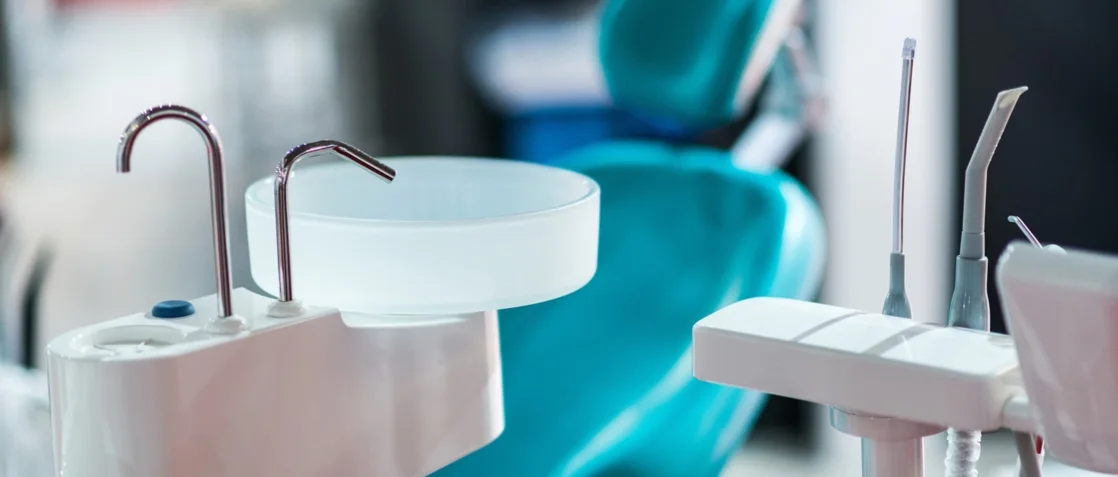WHAT YOU NEED TO KNOW
Patient Info
New Patient Form
We look forward to seeing you at our office. To help us prepare for your appointment and ensure the optimal treatment, please fill out the new patient form online.
Pre & Post Visit Information
- Before Endodontic Treatment
- Sedation & Relaxation
- Home Care Instructions
- After Treatment

This procedure will be performed using local anesthesia. There are usually no restrictions after the procedure concerning driving or returning to work. A doctor is available for consultation at all times should a problem arise after your treatment.
Continue all medications for blood pressure, diabetes, thyroid problems and any other conditions as recommended by your physician. If there is a question, please call our office prior to your appointment.
Please eat a full breakfast or lunch as applicable.
If you have been advised by your physician or dentist to use antibiotic premedication because of mitral valve prolapse (MVP), heart murmur, hip, knee, cardiac or other prosthesis, or if you have rheumatic heart disease, please make sure you are on the appropriate antibiotic on the day of your appointment. If there is a question, please call our office prior to your appointment.
If you can take ibuprofen (Advil) or naproxen sodium (Aleve), it does help reduce inflammation when taken pre-operatively. We recommend 2 tablets of either medication 2-4 hours before endodontic therapy.

We know that many patients are nervous about dental treatments, including root canal therapy. However, this does not have to be a scary experience! In fact, with advanced technology and modern anesthesia, the root canal experience should be no different than having a filling placed. That being said, our staff is trained to help make you feel completely comfortable and relaxed.
If you are particularly anxious, we do offer some sedation options beyond the typical local anesthesia. For most patients, these are not necessary, but always remain an option. These include:
Nitrous Oxide:
Nitrous Oxide is a sweet-smelling, colorless gas which you can breathe before and during treatment. Nitrous Oxide anesthesia has been used for sedation in dentistry for many years. It is safe, as you will always be able to breath on your own and maintain complete control of all body functions, with no side effects to your heart or lungs.
Some patients experience mild amnesia and may fall asleep, not remembering all or part of their appointment. If you continue to feel anxious, the level of sedation can always be increased during the appointment as needed. Nitrous oxide works very rapidly and can also be removed just as quickly, with no after effects. It can also be effective if you have a bad gag reflex.
Prescription Anti-Anxiety Medications:
There are a number of prescription anti-anxiety medications available to you if anxiety is moderate to severe. These include Valium, Halcion, and numerous others, which may be prescribed by our office or by your physician. If such a medication is prescribed, please carefully follow instructions, typically taking one pill before bed the night before and one pill an hour before your appointment. With these medications, it is often necessary that you have someone drive you to and from your appointment.
Intravenous Sedation:
If you or your child is truly unable to tolerate any of the above sedation methods, we do offer treatment under I.V. sedation, as managed by a licensed anesthesiologist. Known as “conscious sedation,” I.V. sedation is a safe, precise, and highly effective technique for management of the more severe levels of dental fear. Your team will carefully monitor your vital signs throughout treatment. A major benefit of some of these IV drugs is amnesia, as many patients have no memory of most, or even all, of the dental treatment. Due to the need to have specialized equipment and personnel present, this treatment will require a second follow-up visit for treatment. If you elect to undergo I.V. sedation, it will be necessary to have someone drive you to and from your appointment.

Your tooth and surrounding gum tissue may be slightly tender for several days as a result of manipulation during treatment and previous condition of your tooth. This tenderness is normal and is no cause for alarm. Do not chew food on the affected side until your endodontic therapy is completed and your tooth is covered with a protective restoration provided by your restorative dentist. You may continue your regular dental hygiene regimen. Discomfort may be alleviated by taking ibuprofen (Advil), aspirin, or acetaminophen (Tylenol) as directed.
Should you experience discomfort that cannot be controlled with the above listed medications, or should swelling develop, please contact our office immediately.
The office telephone is answered day and night. If you need to call after hours, please have your pharmacy number available.

Endodontic treatment has now been completed. The root canal system has been permanently sealed. However, the outer surface is sealed with a temporary restoration. A follow-up restoration must be placed to protect your tooth against fracture and decay. Please telephone your restorative dentist for an appointment. A complete report of treatment will be sent to your restorative dentist. Included in your treatment is a follow-up examination to evaluate the progress of healing. This appointment will require only a few minutes and no additional fee will be charged for the first check-up visit.
Your tooth is more prone to fracture immediately after endodontic treatment. You should chew on the other side until your restorative dentist has placed a core build-up and a protective restoration, usually a crown. If your tooth’s strength is seriously compromised, your endodontist or restorative dentist may place a post and core build-up inside the tooth. Your restorative dentist and endodontist will determine the appropriate restoration to best protect your tooth.
Are There Any Potential Problems After Treatment?
Lower Teeth & Nerve Injury:
There is a slight possibility that nerve injury can occur during root canal surgery to the lower posterior teeth. Your endodontist is trained to assess this possibility prior to treatment and will advise you accordingly. For lower posterior teeth, the root tips may be near a nerve that supplies feeling to the lip, chin and gums. Your endodontist is trained to design your surgery to minimize the chances of damaging this nerve. Rarely, this nerve can become irritated during the process of surgery. In these cases, when the local anesthesia wears off, you may experience tingling, altered sensation or, in rare cases a complete lack of feeling in the affected tissues. Should this occur, it is usually temporary and will resolve over a period of days, weeks or months. In rare cases, these changes can be permanent and/or painful.
Upper Teeth & Sinus Communication:
The upper teeth are situated near your sinuses, and root canal surgery can result in a communication between your mouth and the adjacent sinus. Should this complication occur, it will usually heal spontaneously. We will give you special instructions if this is apparent at the time of surgery. We prefer that you don’t blow your nose for two to three days after surgery. If you have to sneeze, you should sneeze with an open mouth into a tissue. You should not create any pressure in the sinus area. If you sense a complication after surgery, please contact us.
Post-Operative Infections:
Post-operative infections occasionally occur. This usually requires just an office visit and examination. Many times placing you on an antibiotic for one week will take care of the infection Occasionally, other follow-up procedures will be needed.
